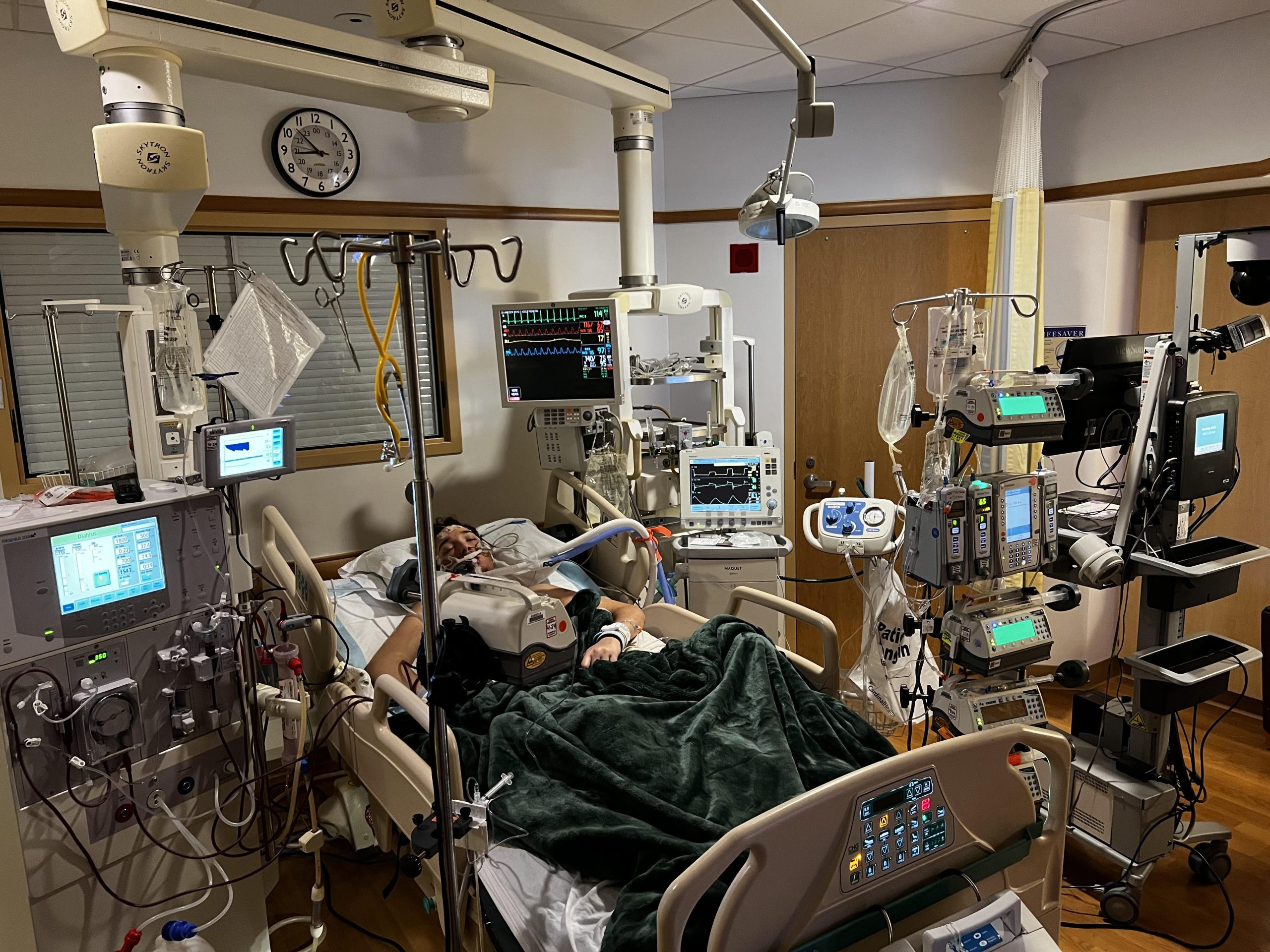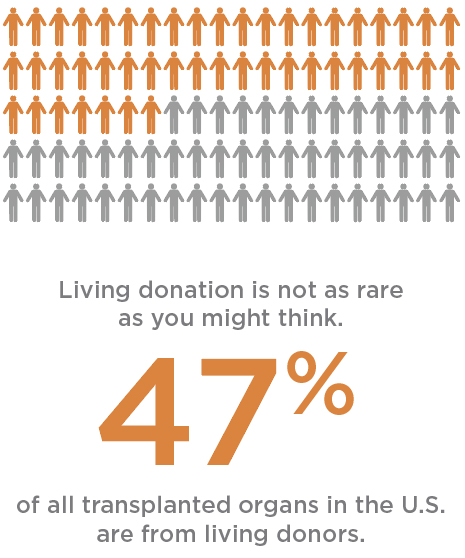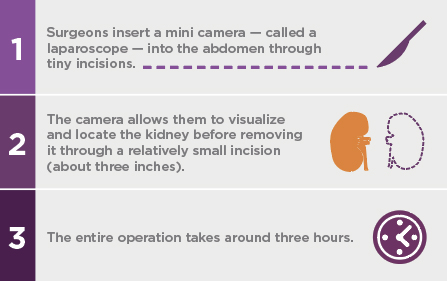
Please consider being a Donor for Deven!
The doctors and transplant team advised us to search for a living donor. The wait times can be long for a deceased donor. Finding a living donor will most likely get him off of the list sooner and on to living his life again.
A kidney donation from a living donor often has better outcomes averaging 15-20 years rather than 8-12 years for a deceased donor.

Deven’s Journey
We’d like you to meet Deven Wilson ~ A most amazing 18-year-old young man, son to Robb and Tina, a twin to Kori, a brother to Rylee and Braydon, and a loving light to an entire cast & crew of extended family members who love him so much!
Deven is a high school student and athlete who in November 2023, right before Thanksgiving, faced some unexpected health issues that quickly became serious and life threatening.
He had just participated in an all-day volleyball tournament the Sunday before Thanksgiving where he played great and his team played extremely well. He showed no signs of anything being wrong. The next day he started to feel “off”. Extreme fatigue and cold-like symptoms were setting in. Over the next couple days things got progressively worse. He spent Thanksgiving day in his bed. Something was not right.
The following morning we took him to his PCP, they took some chest x-rays and determined that it was an “atypical pneumonia”. They prescribed some meds and said to follow-up in a couple of weeks. However, things were not getting better, in fact the were getting far worse. He was coughing up blood and was going downhill rapidly. We rushed him to the emergency room and from that day forward life changed for Deven and the Wilson Family.
We were transferred quickly to the Children’s ICU Unit. Those first couple days were full of questions and fear. No-one had any answers. What were we dealing with? What was happening to Deven. X-rays and CT-scans were showing his lungs were full of blood and he was so very sick, but why? It was so scary. We had specialists and fellows from every department in the hospital stopping in to examine him and run tests. Pulmonology, Infectious Disease, Oncology, Nephrology and Rheumatology just to name a few.
Thanks to the detailed eye of a Rheumatolgy specialist who spotted some tiny spots on his skin they were able to determine they knew what this was. What was initially thought to be pneumonia, ended up being a rare autoimmune disease which had aggressively attacked his lungs and was thought to be causing damage to his kidneys as well. The autoimmune disease called Granulomatosis with Polyangiitis, is a type of Vasculitis. Vasculitis is a condition characterized by inflammation of blood vessels, which can narrow, close off, or weaken, leading to reduced blood flow to organs and tissues.
After some additional testing, a bronchoscopy and kidney Biopsy.
Things were not good at home. He was not showing sign of recovery. He went in for followup labs just six days after discharge. We received a call to get him back in right away. The treatment was not working. His lungs were showing sign of recovery, but his kidney function was continuing to worsen and know one was sure why!
While waiting on results to see if he had the second disease so it could be treated effectively, he had seizures and ended up in the ICU for almost 2 weeks. His kidneys declined in such an extreme pace that we were told he would end up needing a transplant within a year. It was mind blowing how rapidly this all occurred. This was the scariest time of our lives. Everything was happening all at once to him and it seemed like anything that could go wrong was. He had seizures, colitis, pancreatitis, extremely high bps, fluid in lungs, fluid buildup in body, etc. There was so much more. But somehow, he kept pushing forward and fighting. His strength was and is unbelievably amazing!
After weeks of waiting, it was finally diagnosed that the Vasculitis, was potentially the trigger for a secondary disease called aHus, a form of TMA, which is extremely rare. The aHus was causing the rapid decline in his kidney function.
Having GPA along with this second disease is rare, but he has a genetic mutation involved that makes his case, “the rarest of the rare”, quoting his doctors.
He was finally discharged on 2/26/2024. He was not able to go back to school with friends to finish his sophomore year because he was a very sick teenager. He had lost his hair because of the chemo treatments and his critical condition, but we could see him getting better and fighting each day. To others he may have looked sick but to us he looked awesome!
Now on to the new normal. Deven started outpatient dialysis 3/1/2024. Dialysis is hard but it is a life sustaining measure that he needs until he gets a transplant. Robb and I take him multiple times a week to UPMC – Children’s Hospital of Pittsburgh, where he is hooked up to a machine for hours to filter the toxins out of his blood which is something his kidneys are not able to do effectively anymore.
Again, dialysis is HARD and lately it has been very rough for him. He has been getting extremely sick towards the end of each session. He passed out twice this year and was taken to the ER. This was actually a blessing in disguise because it led to tests which showed he has a clot in his heart, likely due to the vascath he has for dialysis. There always seems to be another layer added on to Deven’s diagnosis that we constantly have to address. Honestly, it has been rough since he started his junior school year. Since he is immunocompromised he picks up illnesses much easier than everyone else. It has been a constant battle to keep him healthy.
With that being said, Deven has had an uphill battle staying in school and living the normal teenage life because of his diagnosis. He cannot play sports at the moment but so desperately wants to. He did start work in the Strip District recently and enjoys it but it takes a toll on his energy level. He enjoys hanging out with his friends and really just wants to get back to a normal life and even go on a vacation in the future without worries.
Having a new kidney will give him a second chance at everything he is missing out on right now.
Thank you for following and considering giving the gift of life.
Types of Living Donation
Many people on the kidney transplant waiting list think that they must remain on the transplant waiting list until a deceased donor organ becomes available. But, there is another option: living donation
Living-Donor Kidney Transplant
Advances in surgery and care allow people to donate a kidney to help relatives, friends, or even strangers in need of a transplant. Having a living-kidney donor can help a patient avoid the typical wait times of up to several years for a deceased-donor kidney.
Kidney transplants are also made possible through living-donor kidney exchange. An exchange has the potential to save and improve the lives of people facing kidney failure
Directed Donation: This is when the donor specifically chooses who will receive their living donation.

Non-Directed Donation: This is when the donor is neither related to or known by the person in need. The recipient is determined primarily by medical compatibility.

Paired Donations: This involves at least two pairs of living-kidney donors and transplant candidates who do not have matching blood types. The transplant candidates “trade” donors so that each recipient receives a kidney from the donor with a compatible blood type.

What Happens During a Living-Donor Kidney Transplant
During a living-donor kidney transplant, a healthy kidney from a living donor is removed and transplanted into someone in kidney failure. In most cases, the donor kidney is removed during a minimally invasive procedure that involves making several small incisions in the abdomen.

Kidney Transplant Process
Here is what to expect during this minimally-invasive kidney surgery:

Recovery for Living-Donor Kidney Transplant
Most kidney donors spend one or two days in the hospital to recover. However, we understand that everyone recovers differently, so our kidney transplant team works with each donor to provide a personalized treatment plan that meets their needs after surgery. The full recovery of the donor typically takes a few months before he or she is back to his or her previous level of health and can go back to work. But again, it’s important to note that recovery times after living-donor kidney transplants may vary.
